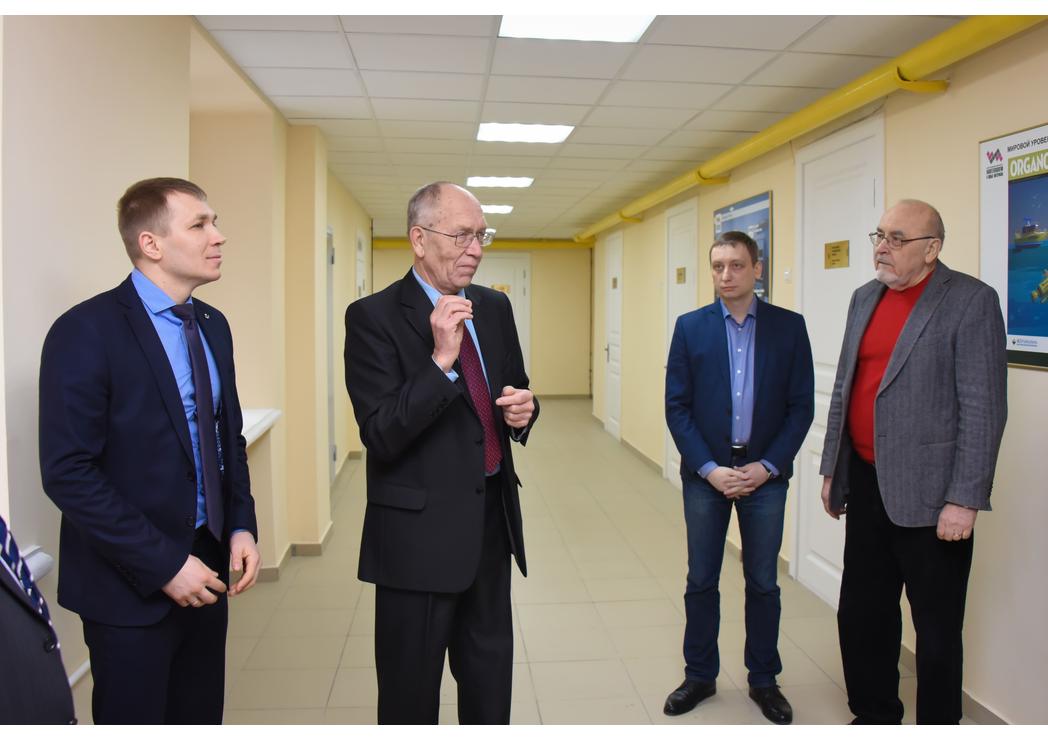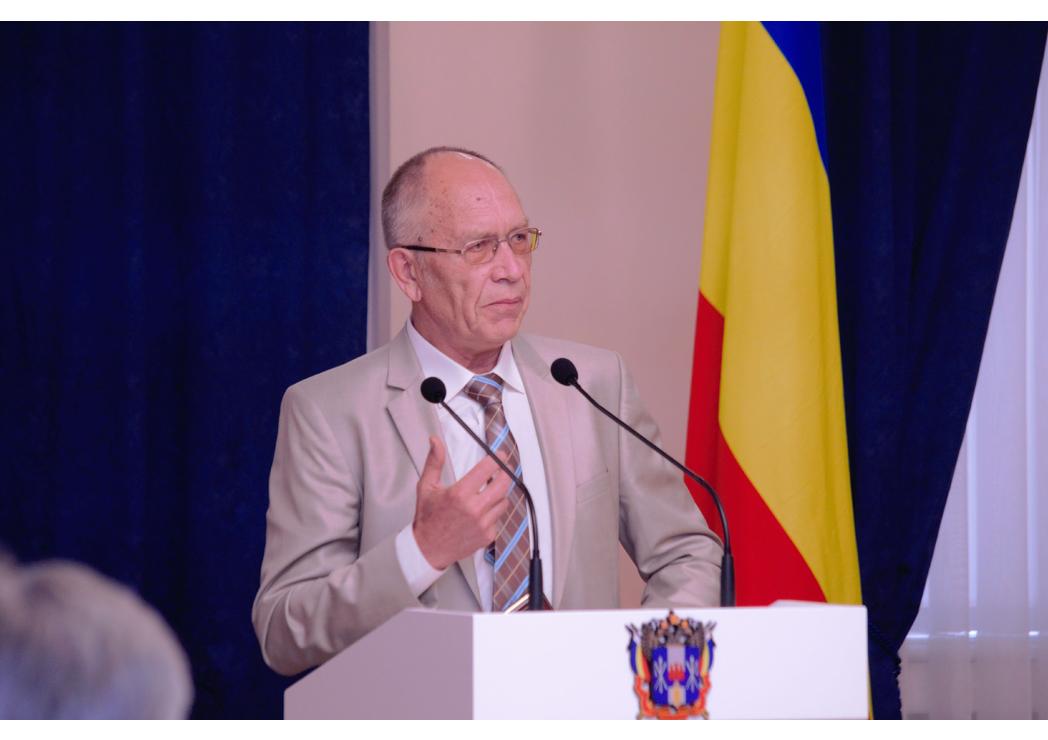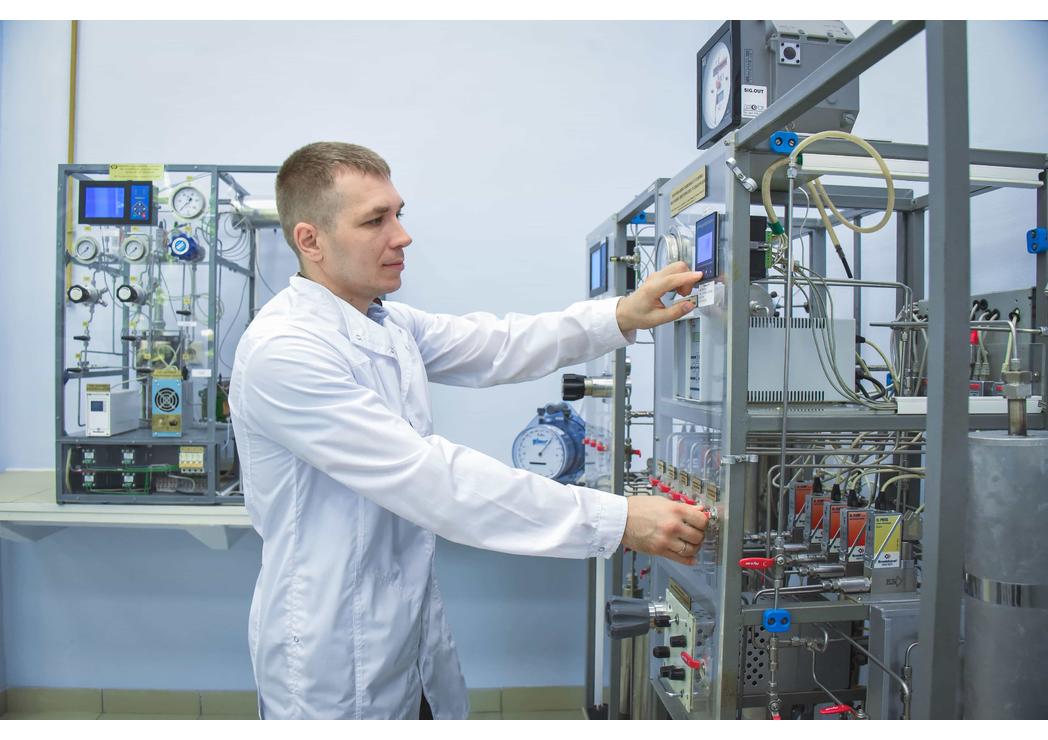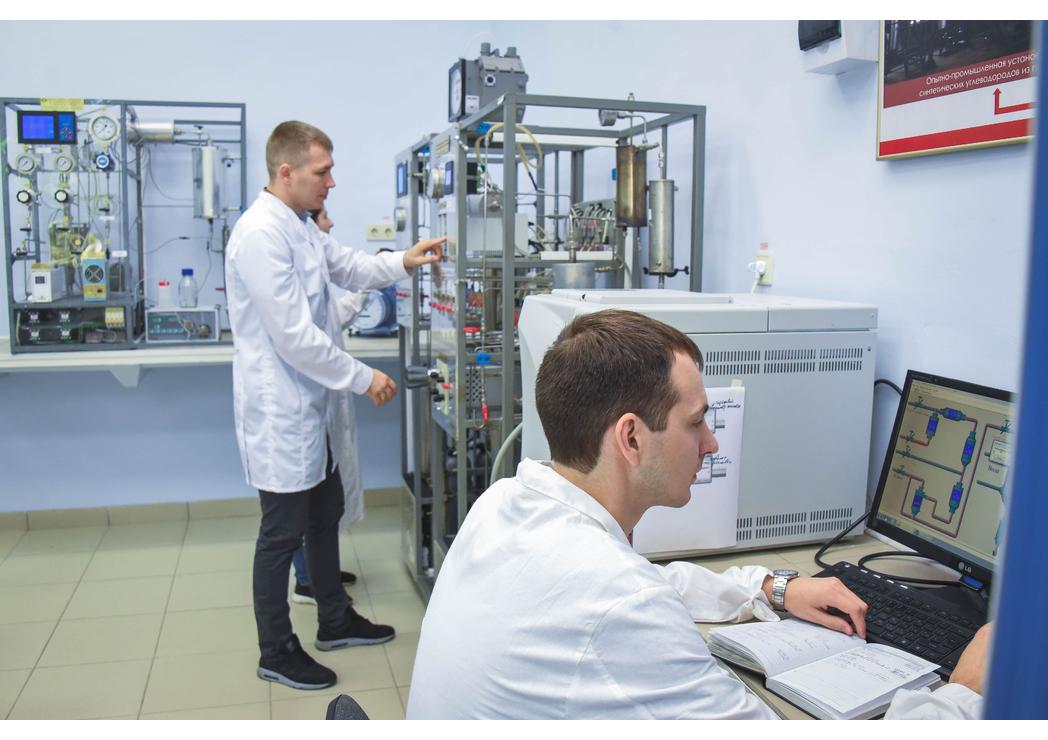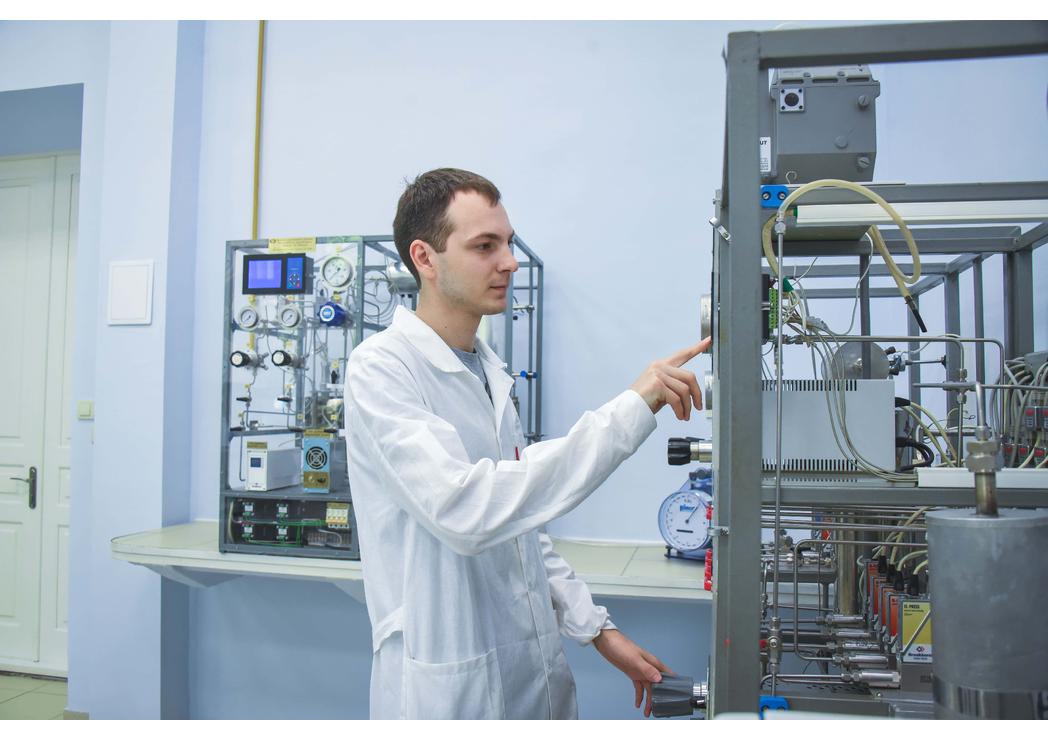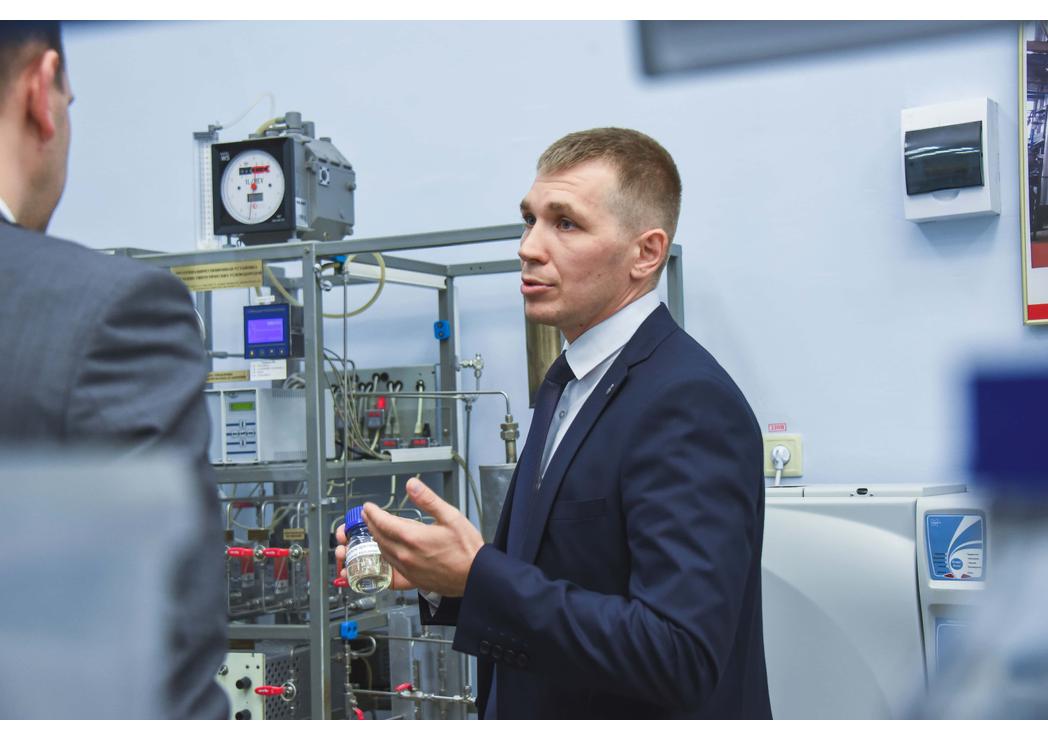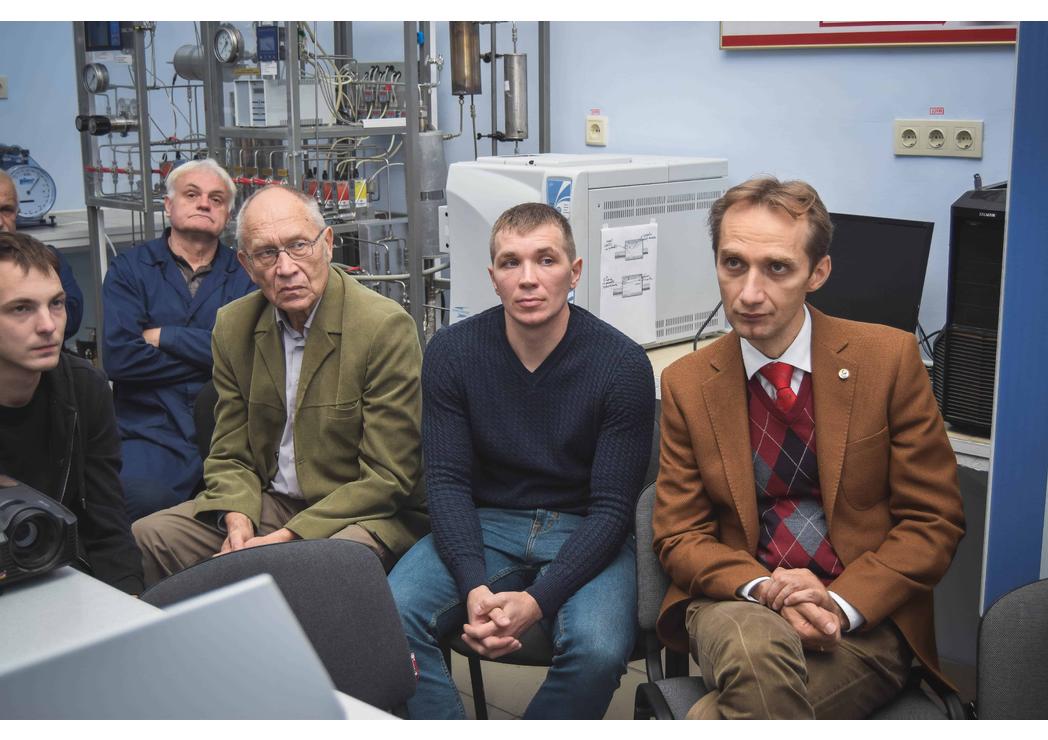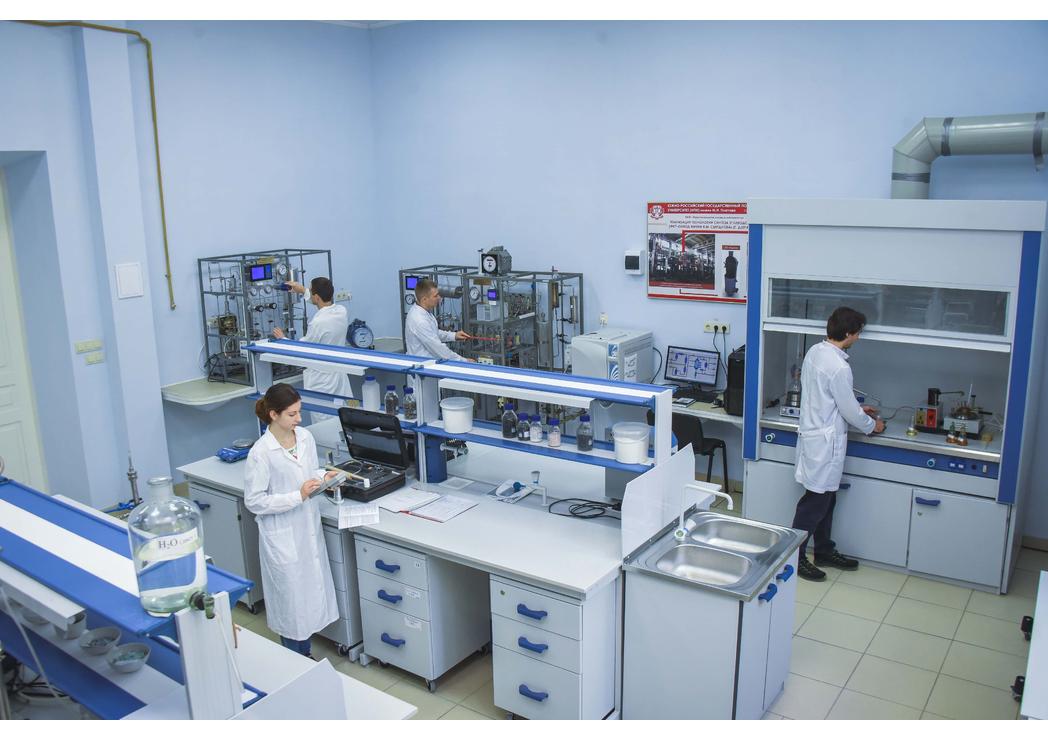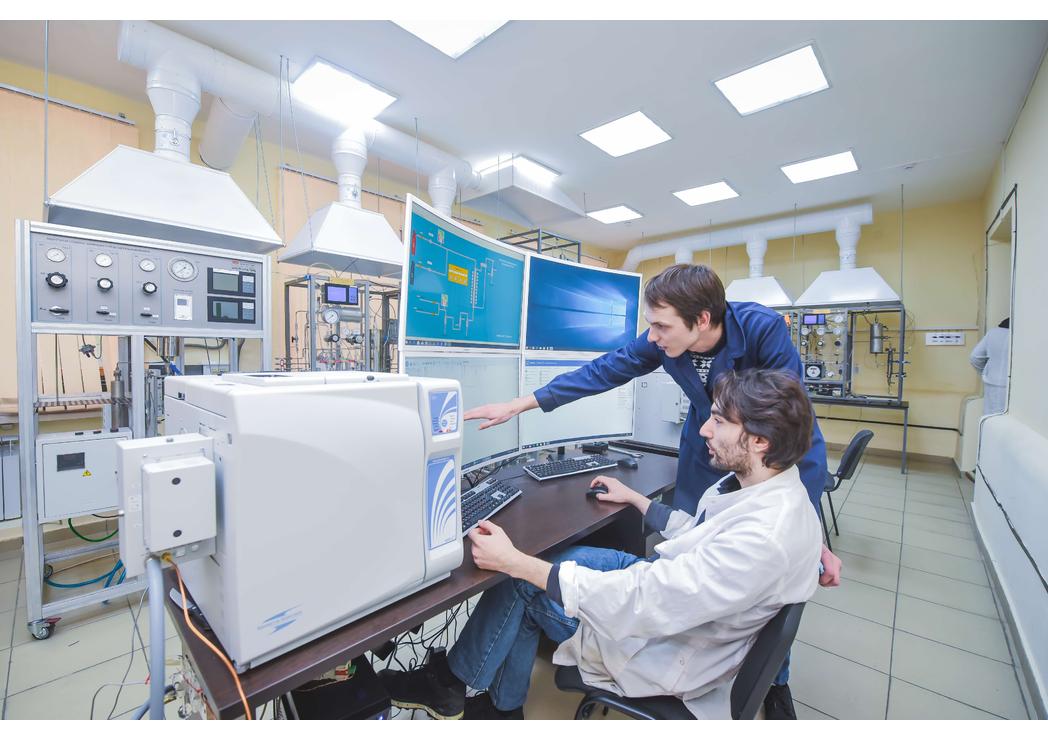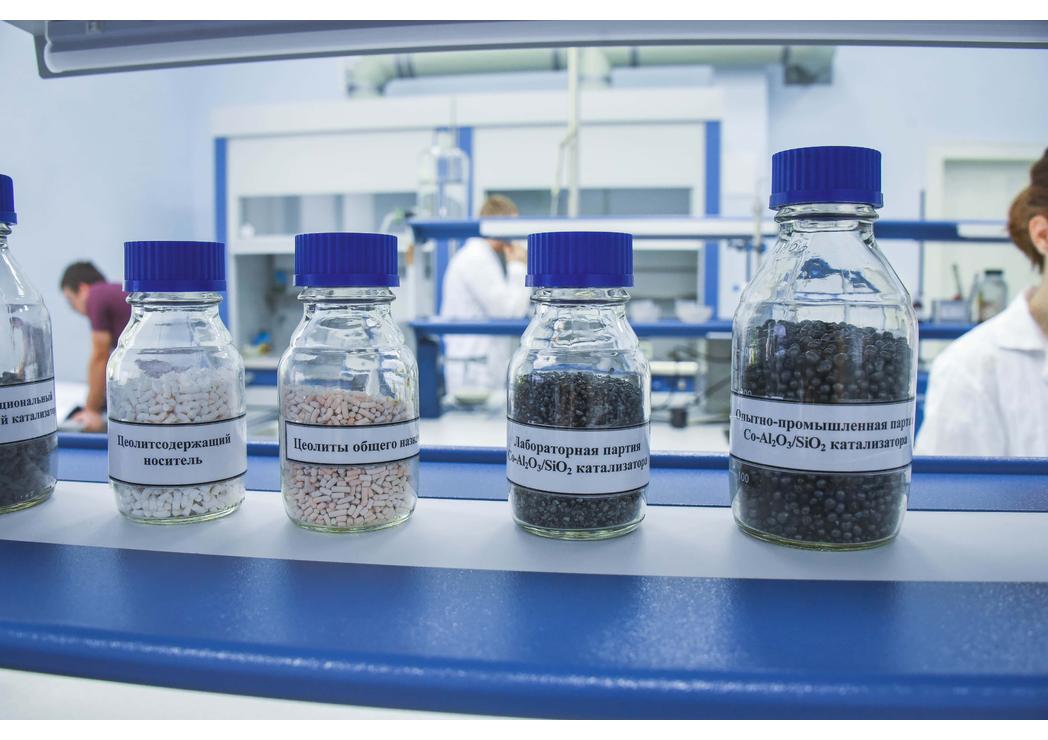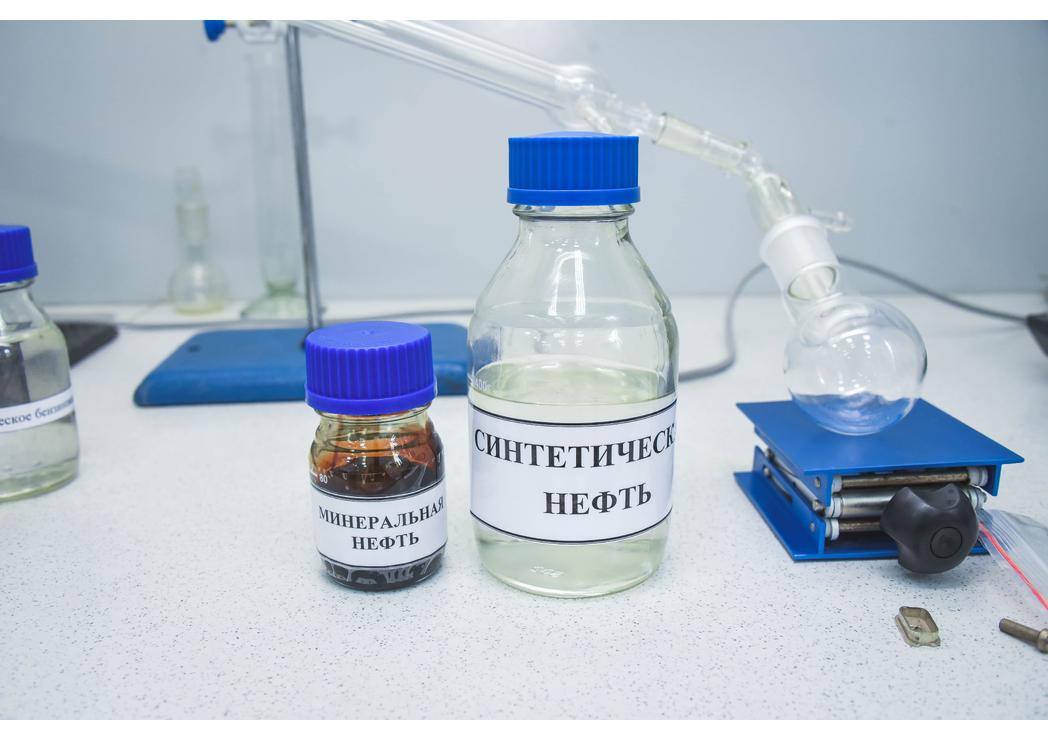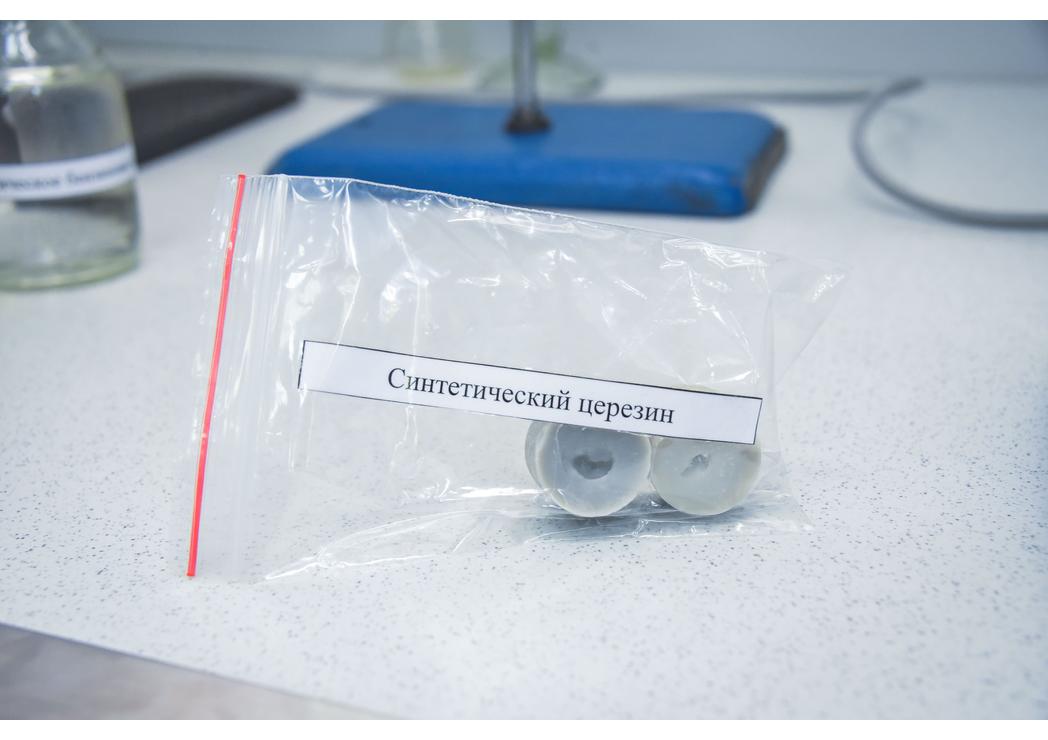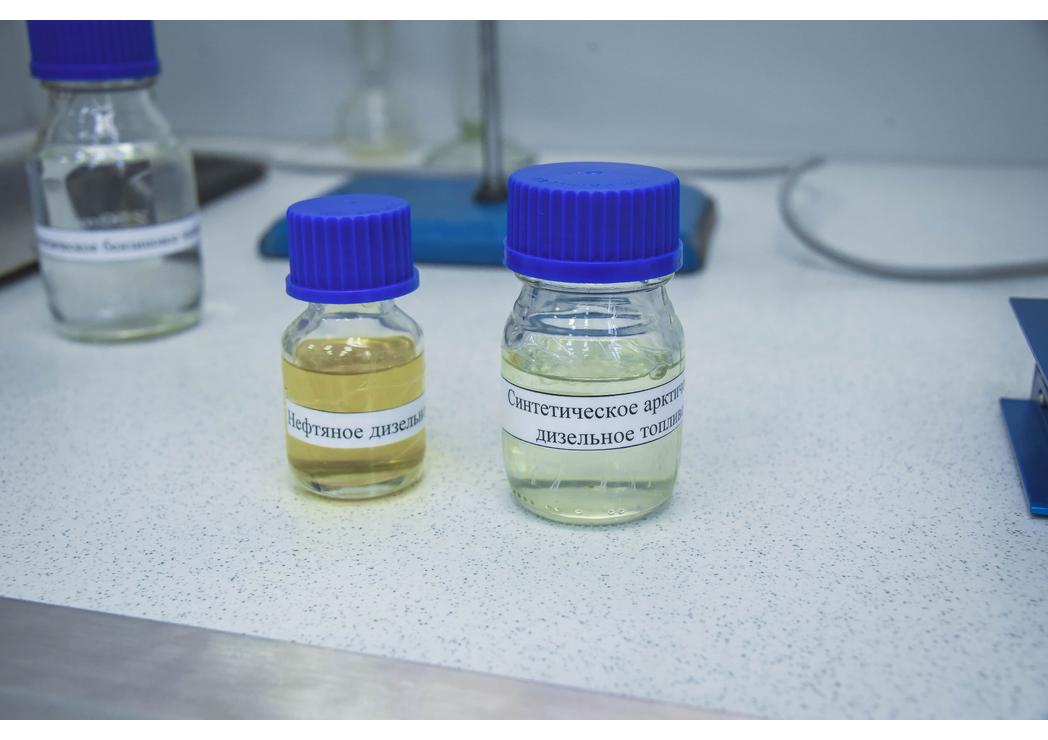Scientists of the Faculty of Technology, employees of the Research Institute "Nanotechnology and New Materials" and their innovative developments are at the top of our news. They always, and not only on the Day of Russian Science, have something to tell readers and listeners about. These wizards of flasks and retorts are able to arouse interest even among those who are far from chemistry. And this is not accidental…
According to the main character of our today's publication, Honored Worker of the Higher School of Russia, Doctor of Technical Sciences, Professor Alexander Petrovich Savostyanov, the "chemicalization" of all aspects of people's lives and activities is the reality of human existence and society. Energy, electronics, biotechnologies, agriculture, utilities, ecology and so on - chemical processes take place everywhere. "In essence, these are changes at the molecular level and, in a philosophical sense, this is a higher form of motion of matter than mechanical and physical," says Alexander Petrovich, whose student youth fell at a time when the chemical industry was actively developing in the USSR, new factories were being built. "All this was actively covered in the media, great popular science magazines "Chemistry and Life", "Science and Technology", "Technology for Youth" were published," the professor recalls. - Enrollment in universities for chemical specialties has increased dramatically. This probably led to the emergence of a "synergistic effect" - the desire to study at the NPI in the field of "Chemical Technology".
A first-year student of the HTF, Alexander Savostyanov, a native of the village of Tarasovsky in the Rostov region, crossed the threshold of the NPI back in 1968.
- I hadn't thought about a career as a scientist then, but I literally failed in science at the end of the third year, - admits the professor of the Department of Chemical Technologies. - Vitaly Andreevich Taranushich "pushed" me, who became my senior friend and mentor for many years. Professor Konstantin Grigoryevich Ilyin looked after him and me. I was recruited to work on installations for testing the activity of catalysts for the production of sulfuric acid. Analyses, loading of catalysts, use of an electric field, new formulations.... We only had a piece of the laboratory table -we couldn't turn around. The professor led us to the basement of the HTF and pointed to the door of room No. 14 "Warehouse" - you can make yourself a laboratory! And we did almost everything with our own hands! Two years later, several installations, equipment for the preparation of catalysts, and an analytical table were working in the laboratory."
It seems that Alexander Petrovich can endlessly list polytechnic scientists, and not only chemists, from whom he "got a passion for science and the joy of communication."
A prominent representative of the NPI school of catalysis, A.P. Savostyanov, states: ninety percent of chemical technologies are catalytic, and the influence of the level of development of the science of catalysis on the technological potential of the state is comparable to the influence of the level of development of nuclear energy. Now it is extremely important to create Russian technologies and production of a huge number of catalysts.
- In my opinion, the participation of students, postgraduates and young scientists in the work of laboratories is very important, - says A.P. Savostyanov. - Young people are actively improving their qualifications: dozens of masters, candidates of sciences. The first young doctors of sciences, a professor of the Russian Academy of Sciences, heads of new laboratories and scientific projects appeared. Many young employees find jobs in other cities in universities, research and production teams. I consider this one of the most important achievements of the scientific catalytic school of the NPI!
Alexander Petrovich is also pleased that the research topics of Novocherkassk polytechnics are currently developing: the relationship of homo- and heterogeneous catalysis; "green" technologies of new platform compounds (5-HMF and products based on it); photocatalysis; hydrogen energy; production of hydrogen, synthesis gas, methanol, synthetic fuels; hybrid catalytic processes; adsorption technologies; laboratory and pilot installations for scientific, industrial and educational centers in Russia.
The Research Institute "Nanotechnology and New Materials", established in 2011 by Professor Savostyanov, employs former graduate students, now candidates of sciences, whose formation and dynamic scientific growth were observed by all employees of the Faculty of Technology and the Research Institute. These young people set the tone for work in laboratories, propose and implement new research directions, cooperate with colleagues from the leading scientific centers of the country, work with students, consult undergraduates and graduate students.
Alexander Petrovich Savostyanov passed the "baton" of scientific excitement and interest in the promising world of catalysis to his talented follower Roman Evgenievich Yakovenko, currently the head of the NTNM Research Institute.
Roman's interest in chemistry arose at school: already in high school, a native of the village of Voznesenskaya in the Labinsky district of the Krasnodar Territory knew that he would enroll in a chemical specialty. "Of all the fields, I liked organic chemistry the most," admits the chemical scientist, who tied his fate with the NPI in 2004. - The reference book helped to navigate: among the list of specialties of the SRSPU (NPI) I found what I was looking for – the "technology of organic substances", and actually calmed down on that."
Roman did not get into science from a student's bench: only after completing the fifth year and defending his diploma, he received an offer from Alexander Petrovich Savostyanov to enter graduate school.
- Immediately after passing the exams, he and I started working on preparing an application for the competition of federal target programs, - recalls the director of the NTNM Research Institute. - I had no experience in this, and I had to acquire it quickly. Today, I envy the guys who work at our research Institute in a good way, and can already find a job in the first or second year, do science, and by the end of their studies they get a lot of groundwork for graduate school. Alexander Petrovich inspired me to take up science, awakening my interest in scientific research. I am very grateful to him for this! My interest arose when the faculty became aware of Alexander Petrovich's new projects aimed at obtaining motor fuels from natural gas and coal. This topic – the possibility of obtaining similar or better products from other raw materials, not from oil – then interested me very much. To make liquid fuel from gas… The inspiration that arose prompted me to read literature. It became clear that the whole world is dealing with this issue, large factories have been built using this technology. I wanted to participate in this!
Catalysis is always a broad perspective, which means ambitious plans and self–confidence. "Now, I think we will build a large heterogeneous catalysis laboratory, we plan that it will become one of the most equipped in Russia," Roman Evgenievich Yakovenko shares his thoughts. "There are a number of products for which we are going to implement our developments on an industrial scale: to move from laboratory, pilot studies to the creation of a full-fledged industrial production."
Fortunately, the "catalytic reaction" also works in the field of human relations. Here I would like to return to the reflections of Professor Savostyanov, who has several decades of work and communication with students: "Most students are determined to achieve results (exam score, scientific success, material income) while minimizing costs. A very interesting moment in the lives of young people is the transition from curiosity (what are they doing in the laboratory?) to passion, the emergence of a need to gain new knowledge and especially to obtain a new result. At this stage, a second wind opens up and the desire to "roll mountains" opens up. It is very important to get into a team where a young person is given attention."
Apparently, it was this kind of attention that the mentors paid in time to a young talented guy Ivan Zubkov, who arrived in 2012 to enroll in the SRSPU (NPI) from the glorious village of Veshenskaya. Ivan admits that it was only within the walls of the university, being in a "chemical atmosphere", that he realized that this science fascinated him.
- At first it seemed to me that I would definitely not do science: Like many people, I was caught up in stereotypes that it was boring, uninteresting, difficult," says Ivan Nikolaevich Zubkov, Candidate of Technical Sciences. - But in the process of studying, I realized that what I do is science. And these are not endless textbooks, manuals, laboratory, but something applied, interesting and, most importantly, necessary. It's nice to know that my colleagues and I are creating something new that is necessary not only for the same scientists, but also for industries. It is very important to have someone on this path who will guide, prompt, patiently explain and simply support in a human way. My main mentors were Alexander Petrovich Savostyanov and Roman Evgenievich Yakovenko, who guided me in the right direction and supported me in every possible way in any endeavor, they were always ready to help and give timely advice.
Development of technologies for the production of synthetic hydrocarbons from various raw materials (natural gases, coal, biomass) as an alternative method of obtaining motor fuels and raw materials for chemical production, this area immediately aroused genuine interest from Ivan Zubkov. He read the news of the scientific world, followed the trends and saw that this particular area was becoming more popular every year.
- I would also like to become a mentor for students who enter the world of science, and share with them the accumulated experience, observations, knowledge, - admits Ivan Nikolaevich. – I want to show them science is not boring, but a very interesting, dynamically developing and relevant field.
This means that the authoritative scientific catalytic school of the first university in the South of Russia is in safe hands, and the reaction of "turning into a chemical scientist", launched many decades ago, has unlimited potential!

